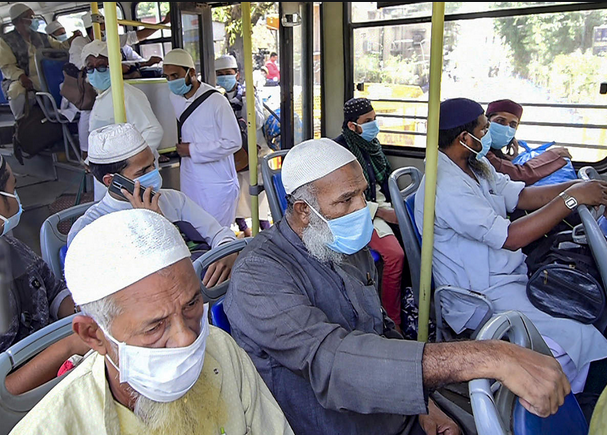Tablighi guests' treatment shows ‘Atithi Devo Bhava’ a mere tourism jingle

The maxim of ‘atithi devo bhava’ lends a humane character to India’s culture, standing as an epitome of hospitality that the country vouches for despite centuries of misrule and loot by invaders. The question is, is the Sanskrit phrase which once reflected the generosity of Indian culture, under the threat of being reduced to a catchy tourism jingle?
For the average biased Indian, a foreign tourist means the white-skinned ‘angrez’, who holidays in luxury hotels and tourism hotspots and brings dollars to the country.
But, the ‘foreigner’ tag for those who don’t fit into this pre-determined image, is often subjected to doubts while the intent of the visit of such people is closely scrutinised. This besides, the alleged state discrimination against tourists based on their religion.
One of the headline grabbers during the initial days of the COVID-19 pandemic was the Tablighi Jamaat congregation at Delhi’s Nizamuddin Markaz, which emerged as a hotspot for the virus.
Related news: Tablighi Jamaat row: All 36 foreigners acquitted by Delhi court
Those days, every small virus cluster was reported widely, especially when discovered in the national capital. It was a time when COVID-19 infections surged by the day and as people kept count of the daily tally, the government made desperate bids to ramp up health infrastructure to contain the spread of the disease. At this juncture, when Tablighi Jamaat was reported as a new hotspot, it was instantly branded a “super-spreader” event and incriminated for what it has now been absolved of.
A Delhi court on Wednesday acquitted as many as 36 foreigners hailing from 14 countries including Malaysia and Indonesia, months after they were charge-sheeted for attending the Jamaat congregation, allegedly being negligent and disobeying virus guidelines issued during that time.
Several leaders of the ruling party at the Centre also called it a “conspiracy” to spread the virus.
During the acquittal of the foreign nationals, the court said the prosecution failed to prove the presence of the accused at Nizamuddin Markaz premises between March 12 and April 1. Also, as per the list of evacuees, none of them had any symptoms of the infection, and thus the charge of negligence on their part does not hold.
The 36 were last of the 955 accused charge-sheeted in the case. About 911 had pleaded guilty to avoid trial in a foreign country by a plea bargain, while in August a magistrate’s court had found that there was “no prima facie evidence” against eight more.
Thus, all stood acquitted with the police failing to prove in court why they should be prosecuted.
Pulling up the police, the court said the department had not placed “even an iota of evidence on record to prove the publication of orders issued in the wake of the COVID-19 pandemic for social distancing and other precautions to bring it to the notice of persons staying in the Markaz.”
Related news: Tablighi Jamaat event in Delhi led to COVID spread: Home Ministry
In August this year, the Aurangabad bench of Bombay High Court made a similar observation in this regard.
News agency ANI had reported that the court observed that when the virus was spreading, a “politically motivated government” was looking for a scapegoat, and that the foreigners fit the bill. The court had also noted that there was a propaganda in the media against the foreigners to blame them for the spread of the infection in the country.
In a country that boasts of its hospitality towards foreign guests, the police action was surprising, so was the targeted narrative.
